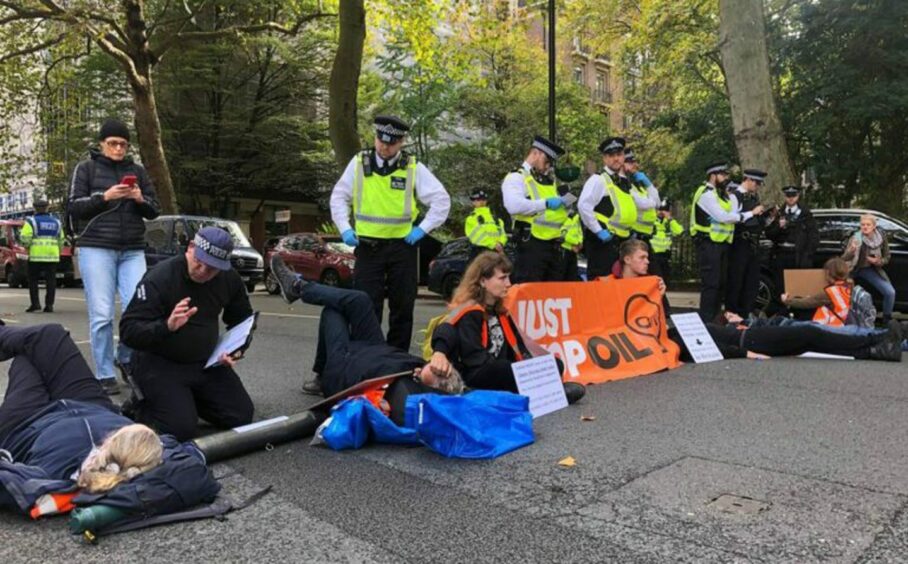
Prime Minister Rishi Sunak plans to strengthen anti-protest legislation, giving police additional powers to clamp down on demonstrations even before they’ve caused any disruption.
The government on Monday will propose an amendment to its own Public Order Bill — currently working its way through the House of Lords — to broaden the definition of what constitutes “serious disruption,” according to a statement from Sunak’s office.
“We cannot have protests conducted by a small minority disrupting the lives of the ordinary public: it’s not acceptable and we’re going to bring it to an end,” Sunak said in the statement. “The police asked us for more clarity to crack down on these guerrilla tactics, and we have listened.”
The legislation is aimed at strengthening the police’s ability to deal with protests such as those in recent years from environmental campaigners at Just Stop Oil and Extinction Rebellion, who have brought traffic and public transport to a standstill by blocking bridges, motorways and London’s subway network.
But it’s provoked the ire of civil liberty groups and of the opposition Labour Party.
📢The #PublicOrderBill is an attack on people's ability to stand up to power
📢Protest isn't a gift from the State – it's OUR RIGHT pic.twitter.com/zuZ9m1qLrB
— Liberty (@libertyhq) January 15, 2023
Labour’s policing spokeswoman, Sarah Jones, said in a statement that the police already have powers to deal with disruptive protests. She criticized Sunak for not focusing instead on tackling “the epidemic of violence against women and girls” or on prosecuting criminals.
The amendment will include allowing police to consider the total impact of a series of protests rather than treating them as a single incident; giving officers the right to step in even before a protest has resulted in disruption, and letting them deal with long-running campaigns designed to cause chaos repeatedly, according to the statement.